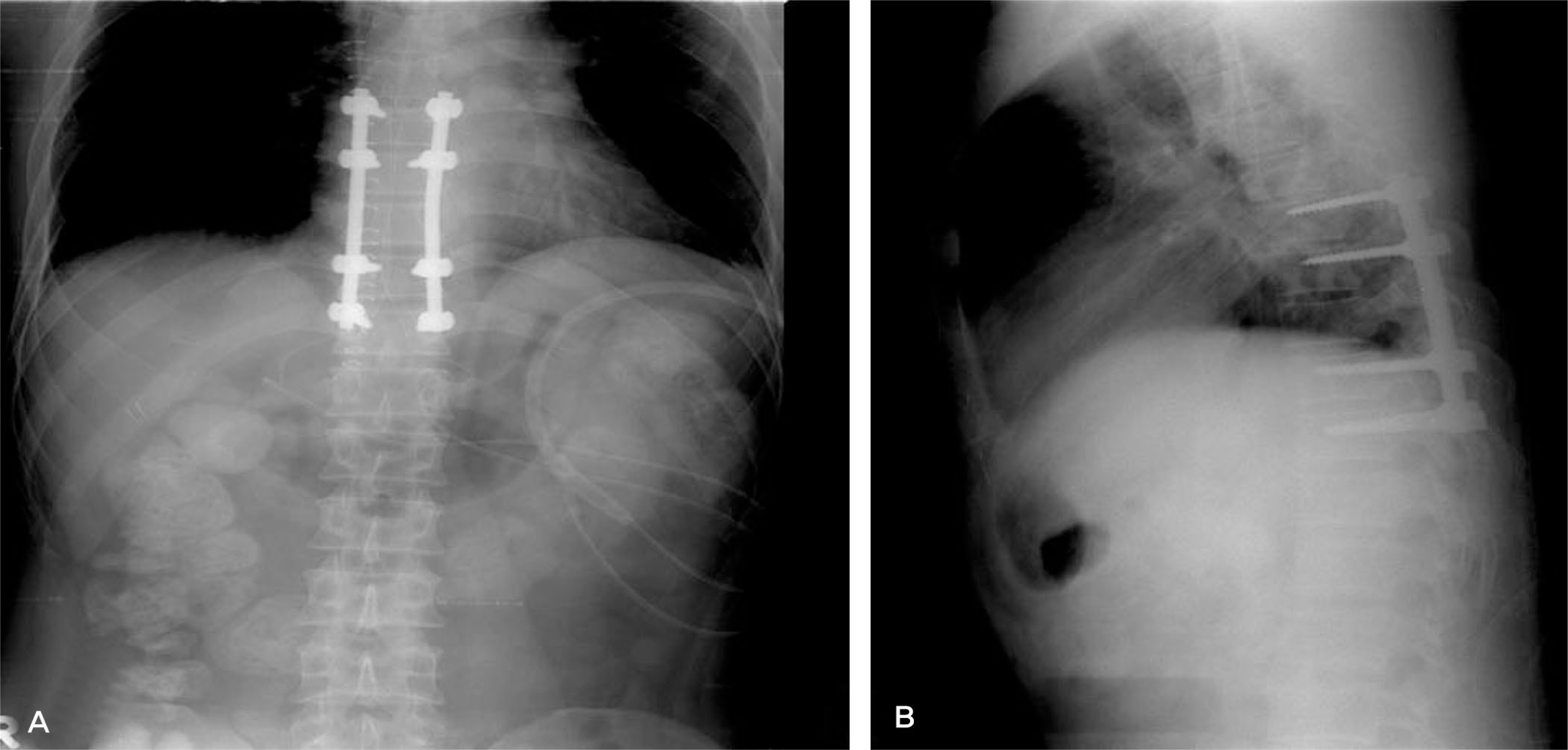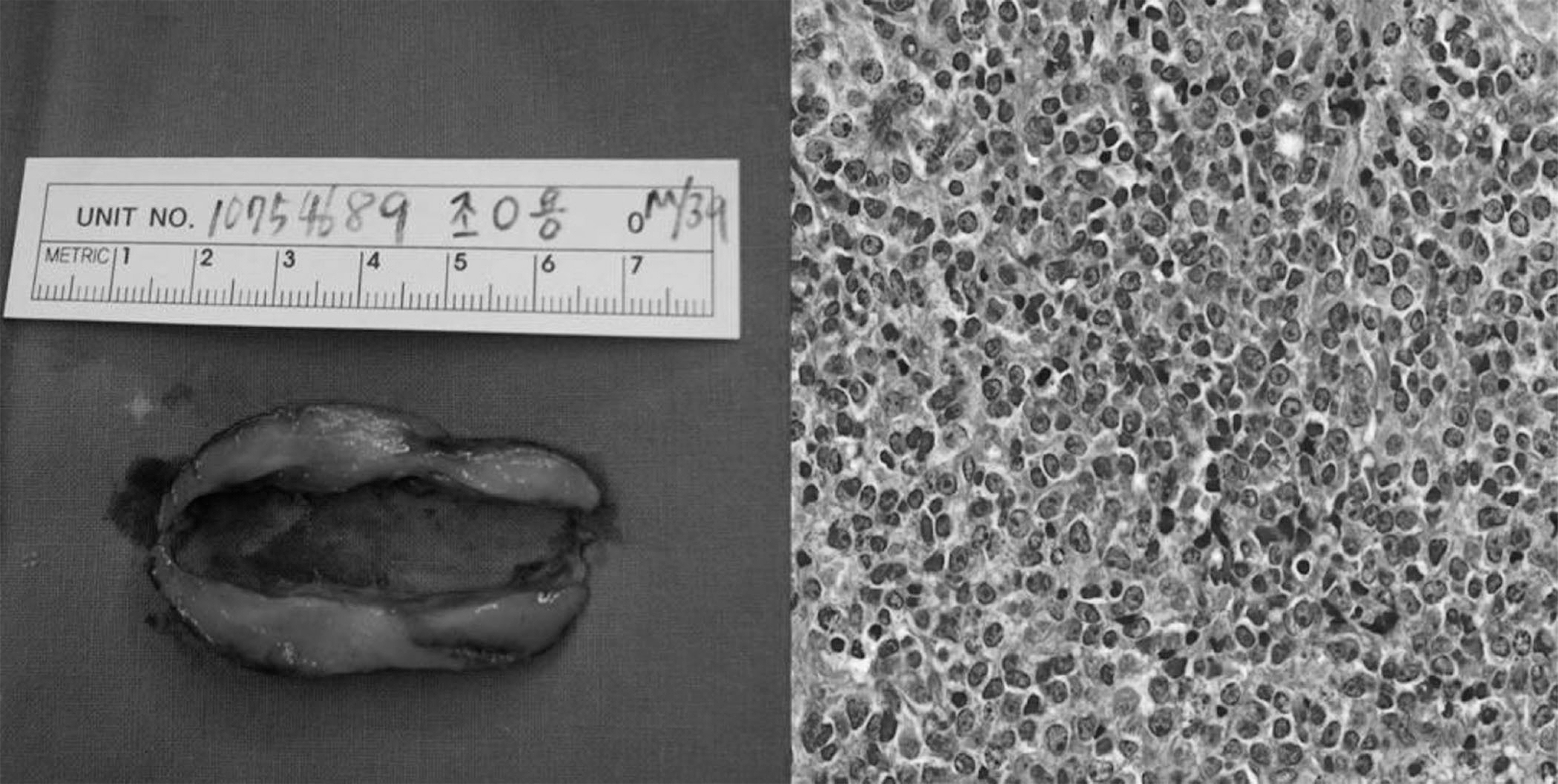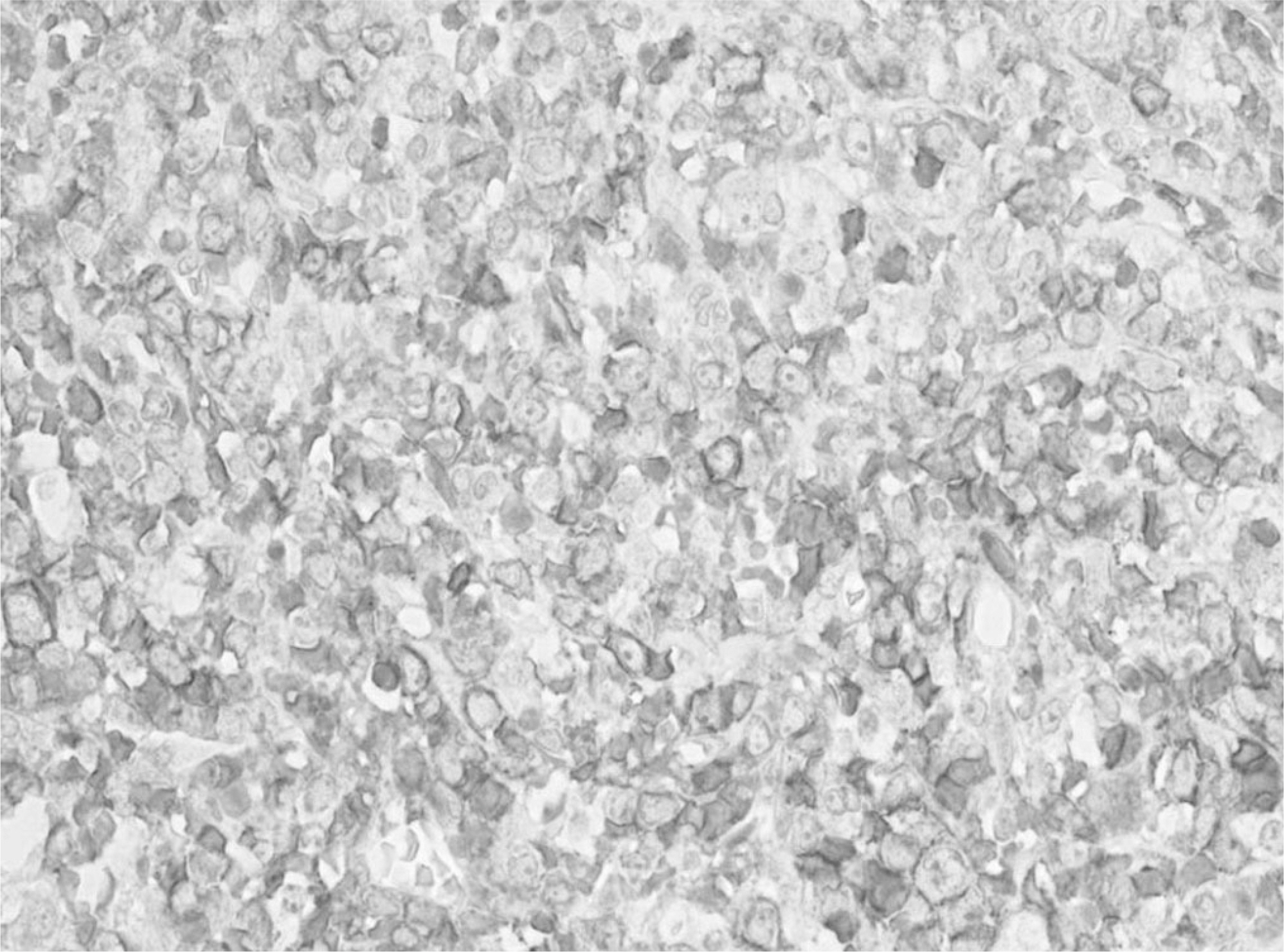J Korean Soc Spine Surg.
2010 Mar;17(1):33-37. 10.4184/jkss.2010.17.1.33.
Epidural Granulocytic Sarcoma presenting as Thoracic Spinal Cord Compression: Case Report
- Affiliations
-
- 1Department of Orthopaedic Surgery, CHA Bundang Medical Center, CHA University, Korea.
- 2Department of Orthopaedic Surgery, CHA Gumi Medical Center, CHA Hospital, Korea. shinde@cha.ac.kr
- 3Department of Internal medicine, Hematology and Oncology section, CHA Bundang Medical Center, CHA University, Korea.
- KMID: 2003097
- DOI: http://doi.org/10.4184/jkss.2010.17.1.33
Abstract
- STUDY DESIGN: A case report
OBJECTIVES
This case report presents a patient with thoracic spinal cord compression, who had been on regular follow-up after being diagnosed with myelodysplastic syndrome. SUMMARY OF LITERATURE REVIEW: A granulocytic sarcoma is a rare tumor that occurs in the extramedullary sites, forming a localized lesion with a predilection in the orbit, sinus and periosteum. It rarely involves the central nervous system, particularly spinal cord. MATERIAL AND METHODS: For myelodysplastic syndrome, the patient underwent a bone marrow transplant for the condition. He was placed on conservative treatment until he developed sudden abdominal pain. He was admitted to our hospital through the emergency department. On the 2nd hospital day he complained of increasing weakness in his lower extremities. He underwent an emergency decompression of the spinal cord and his motor weakness completely disappeared.
RESULTS
No signs of recurrence were found on the follow up performed at 2 years and 6 months.
CONCLUSION
Epidural granulocytic sarcoma is rare but can be treated successfully.
MeSH Terms
Figure
Reference
-
1.Shiozawa Y., Kiyokawa N., Saito M., Fujimoto J., Hata J., Yamashiro Y. Granulocytic sarcoma of the spine in a child without bone marrow involvement: a case report and literature review. Eur J Pediatr. 2005. 164:616–20.
Article2.Sandhu GS., Ghufoor K., Gonzalez-Garcia J., Elexpuru-Camiruaga JA. Granulocytic sarcoma presenting as cauda equina syndrome. Clin Neurol Neurosurg. 1998. 100:205–8.
Article3.Balleari E., Panarello S., Capello E, et al. Granulocytic sarcoma: an unusual cause of spinal cord compression. International Journal of Clinical Oncology. 2007. 12:234–7.
Article4.Choi WY., IS Kim., Choi IY, et al. Granulocytic Sarcoma as a Presenting Spinal Cord Compression. Korean J Internal Medicine. 1992. 42:549–54.5.Landis DM., Aboulafia DM. Granulocytic Sarcoma: An Unusual Complication of Aleukemic Myeloid Leukemia Causing Spinal Cord Compression. A Case Report and Literature Review. Leukemia and Lymphoma. 2003. 44:1753–60.
Article6.Mostafavi H., Lennarson PJ., Traynelis VC. Granulocytic sarcoma of the spine. Neurosurgery. 2000. 46:78–83.
Article7.Brunning RD., Matutes E., Flandrin G. Acute myeloid leukemia not otherwise specified. Pathology and Genetics of Tumours of Haematopoietic and Lymphoid Tissues (WHO). Lyon, France: IARC Press;2001.
Article
- Full Text Links
- Actions
-
Cited
- CITED
-
- Close
- Share
- Similar articles
-
- A Case of Spinal Epidural Granulocytic Sarcoma with Acute Paraparesis: A Case Report
- Clinical Experience of Leukemia with Extradural Chloroma during Treatment of Lower Back Pain
- A Case of Granulocytic Sarcoma causing Spinal Cord Compression in Chronic Myelogenous Leukemia
- Epidural Granulocytic Sarcoma involving the Thoracic Spine and Sternum in Acute Myelogenous Leukemia
- Granulocytic sarcoma presenting in two patients without leukemia





